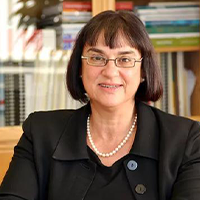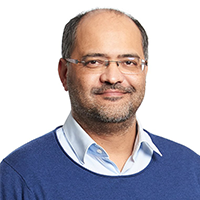Powering Economic Recovery: Lessons from South Africa’s Electricity Crisis
Join us for a policy dialogue examining the economic impact of South Africa’s electricity crisis. The discussion will focus on how load-shedding has disrupted key sectors such as manufacturing, public services, and infrastructure, as well as its effects on employment and economic recovery. Drawing from SA-TIED’s research, expert panelists will share insights and discuss strategies to strengthen South Africa’s energy systems and economic resilience.
Discussion points
- Sectoral and economic impact: Exploring how load-shedding has influenced energy-intensive industries and its broader effects on the economy.
- Labour market dynamics: Examining the crisis’s impact on employment and identifying policies to support workers and enhance job security.
- Energy resilience strategies: Examining renewable energy integration, infrastructure improvements, and grid modernization as measures to strengthen the energy sector’s capacity and support long-term economic stability.
This event is a hybrid gathering that offers both in-person and online attendance options. Participants who choose to join remotely will receive login details to access the virtual platform. For in-person guests, light refreshments will be available during networking sessions before and after the event.
Register here.
About South Africa’s electricity crisis
South Africa’s electricity challenges have highlighted areas of vulnerability across the economy, impacting industries, employment, and public services. While progress has been made to stabilize energy supply through infrastructure investments and renewable energy initiatives, challenges remain.This dialogue will bring together insights from SA-TIED research to explore these issues, identify lessons from the crisis, and discuss policies to support economic recovery and long-term resilience.
The panel for this event will feature a diverse group of experts, including:
Joanne Yawitch, Head, Just Energy Transition Project Management Unit in the South African Presidency

Joanne Yawitch is the Head of the Just Energy Transition Project Management Unit in the South African Presidency. She is also a Commissioner on both the Presidential Climate Commission and the National Planning Commission. Previously, Joanne served as the Chief Executive Officer of the National Business Initiative (NBI) and as the Deputy Director General for Climate Change in the Department of Environmental Affairs. Her earlier roles include working with the Gauteng Department of Environment from 1997 to 2004 and serving as Special Adviser to the Minister of Land Affairs from 1994 to 1997.In addition to her professional achievements, Joanne is the former Chair of the Board of Directors of South African National Parks (SANParks). She currently sits on the Board of the South African Forestry Company (SAFCOL) and chairs its Social and Ethics Committee.
Chris Yelland, Managing Director, EE Business Intelligence

Chris Yelland is the Managing Director of EE Business Intelligence (Pty) Ltd. He holds a Bachelor of Science degree in electrical engineering from the University of Natal. He founded and managed EE Publishers, which produced Engineer IT, Energize, Vector, and Position IT magazines, before establishing EE Business Intelligence in 2019 to address strategic issues in the electricity and energy sectors in South Africa and the region. In February 2020, Chris became an associate consultant for Krutham, a financial services and capital markets research group, and an energy advisor to the Organisation Undoing Tax Abuse (OUTA). He has received numerous accolades, including the 2002 South African Bureau of Standards Media Award, the 2003 Siemens Profile Award in the Energy category, and the 2004 ABB Technology Journalist of the Year Award. He also won the 2009 South African National Energy Association (SANEA) Journalism Award and the 2018 South African Institute of Electrical Engineers (SAIEE) President’s Award.A fellow of the SAIEE, Chris is also a senior member of the IEEE (USA) and a member of the IET (UK). He is a registered Chartered Engineer with the Engineering Council in the UK
Haroon Bhorat, Director, Development Policy Research Unit at the University of Cape Town

Haroon Bhorat is a Professor of Economics and Director of the Development Policy Research Unit at the University of Cape Town. His research focuses on labour economics, poverty, and income distribution. He holds the DST/NRF SARChI Chair in Economic Growth, Poverty, and Inequality Research and is a Non-resident Senior Fellow at the Brookings Institution. He is also a Research Fellow at IZA, the Institute for the Study of Labour in Bonn, and a member of the UCT College of Fellows. Prof. Bhorat is a member of the Presidential Economic Advisory Council (PEAC. He has also served as an economic advisor to two former Ministers of Finance and was a member of the Presidential Economic Advisory Panel. He sits on the editorial advisory board of the World Bank Economic Review and is a Board Member of the National Research Foundation (NRF). Prof. Bhorat earned his PhD in Economics from Stellenbosch University and studied at the Massachusetts Institute of Technology.
Philippe Burger, Dean, Faculty of Economic and Management Sciences, University of the Free State

Professor Philippe Burger has been the Dean of the Faculty of Economic and Management Sciences at the University of the Free State since March 2022, and he has held the position of Professor of Economics since 2007. As Professor of Economics, Professor Burger has held several leadership positions, including Pro-Vice-Chancellor (Pro-VC): Poverty, Inequality and Economic Development of the university and Vice-Dean (Strategic Projects) of the Faculty of Economic and Management Sciences from 2019 to early 2022, Head of the Department of Economics at the UFS from 2002 to 2019, and acted as Dean of the Faculty of Economic and Management Sciences from February 2018 to January 2019. In 2009, he was a visiting scholar at the IMF and was seconded to the Organisation for Economic Cooperation and Development (OECD) in Paris several times. Professor Burger was President of the Economic Society of South Africa (2012-2014), co-authored a 20-year review of South African fiscal policy since 1994, and was one of the 20 participants in a roundtable meeting with President Cyril Ramaphosa in 2018 on how to get economic growth in South Africa on a higher growth trajectory. He was also a member of the South African Statistics Council and a panel of experts of the South African National Treasury.
Aalia Cassim, Acting Chief Director, Microeconomic Policy, National Treasury

Aalia Cassim is the Acting Chief Director of the Microeconomic Policy team at the National Treasury and part of Operation Vulidlela. She has a PhD in Economics from Wits University and has focused on network industries and labour markets with an emphasis on evidence-based policy making.
Moderator
Refilwe Moloto

Refilwe Moloto is an independent economic and strategic advisor with 20 years' experience in Emerging & Frontier Markets economics and fixed income research, institutional equities broking, and global asset management in Johannesburg, New York, and Cape Town.
Ms. Moloto currently chairs the investment committee of Maia Capital Partners and is a non-executive director of Perpetua Investment Managers. She was previously an Expert Member of the Eskom Pension & Provident Fund’s Strategic Investment Committee and held senior roles at the then Investec Asset Management (now Ninety One) and Merrill Lynch & Co. (now Bank of America). Passionate about Africa, and focused on developmental investment solutions, she is also a commentator on strategic economic and financial market development in Africa, invited to speak at global technical conferences and in the media. In media, Ms. Moloto was the first black woman host of a commercial talk radio breakfast show in Africa, SA Radio Award-winning Breakfast with Refilwe Moloto, on the Western Cape’s leading talk station, CapeTalk. Ms. Moloto is an Aspen Global Leadership Network Fellow in the 11th Class of the regional chapter, the Africa Leadership Initiative.

